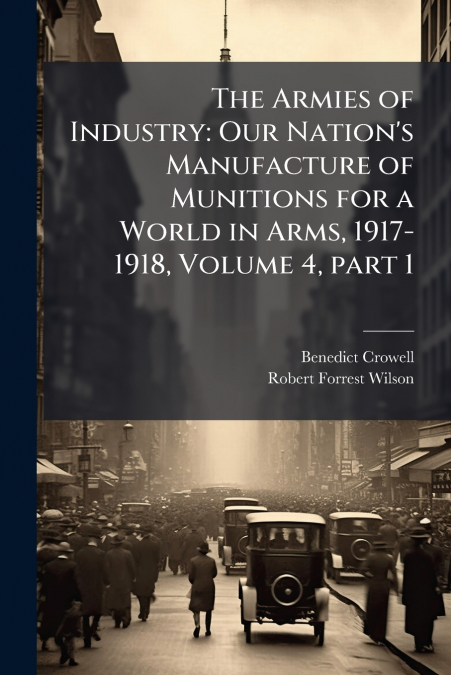
Benedict Crowell / Robert Forrest Wilson
The Armies of Industry: Our Nation’s Manufacture of Munitions for a World in Arms, 1917-1918, Volume 4, part 1 offers a detailed look at America’s industrial mobilization during World War I. Authored by Benedict Crowell and Robert Forrest Wilson, this volume, part of the series 'How America Went To War; An Account Of Official Sources Of The Nation’s War Activities, 1917-1920,' examines the unprecedented effort to supply the Allied forces with essential war materials. Published in 1921, this historical account draws from official sources to provide an in-depth analysis of the manufacturing processes, logistical challenges, and organizational structures that defined America’s contribution to the war effort. It explores how American industries rapidly adapted and expanded to meet the immense demands of a world at war. This volume serves as a valuable resource for historians, researchers, and anyone interested in the intersection of industry, military strategy, and national mobilization during a pivotal period in global history.This work has been selected by scholars as being culturally important, and is part of the knowledge base of civilization as we know it. This work was reproduced from the original artifact, and remains as true to the original work as possible. Therefore, you will see the original copyright references, library stamps (as most of these works have been housed in our most important libraries around the world), and other notations in the work.This work is in the public domain in the United States of America, and possibly other nations. Within the United States, you may freely copy and distribute this work, as no entity (individual or corporate) has a copyright on the body of the work.As a reproduction of a historical artifact, this work may contain missing or blurred pages, poor pictures, errant marks, etc. Scholars believe, and we concur, that this work is important enough to be preserved, reproduced, and made generally available to the public. We appreciate your support of the preservation process, and thank you for being an important part of keeping this knowledge alive and relevant.